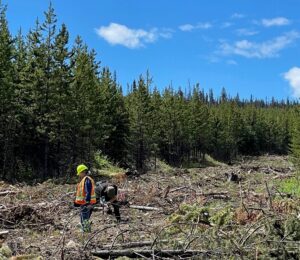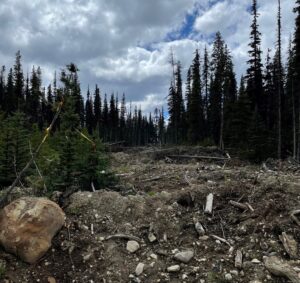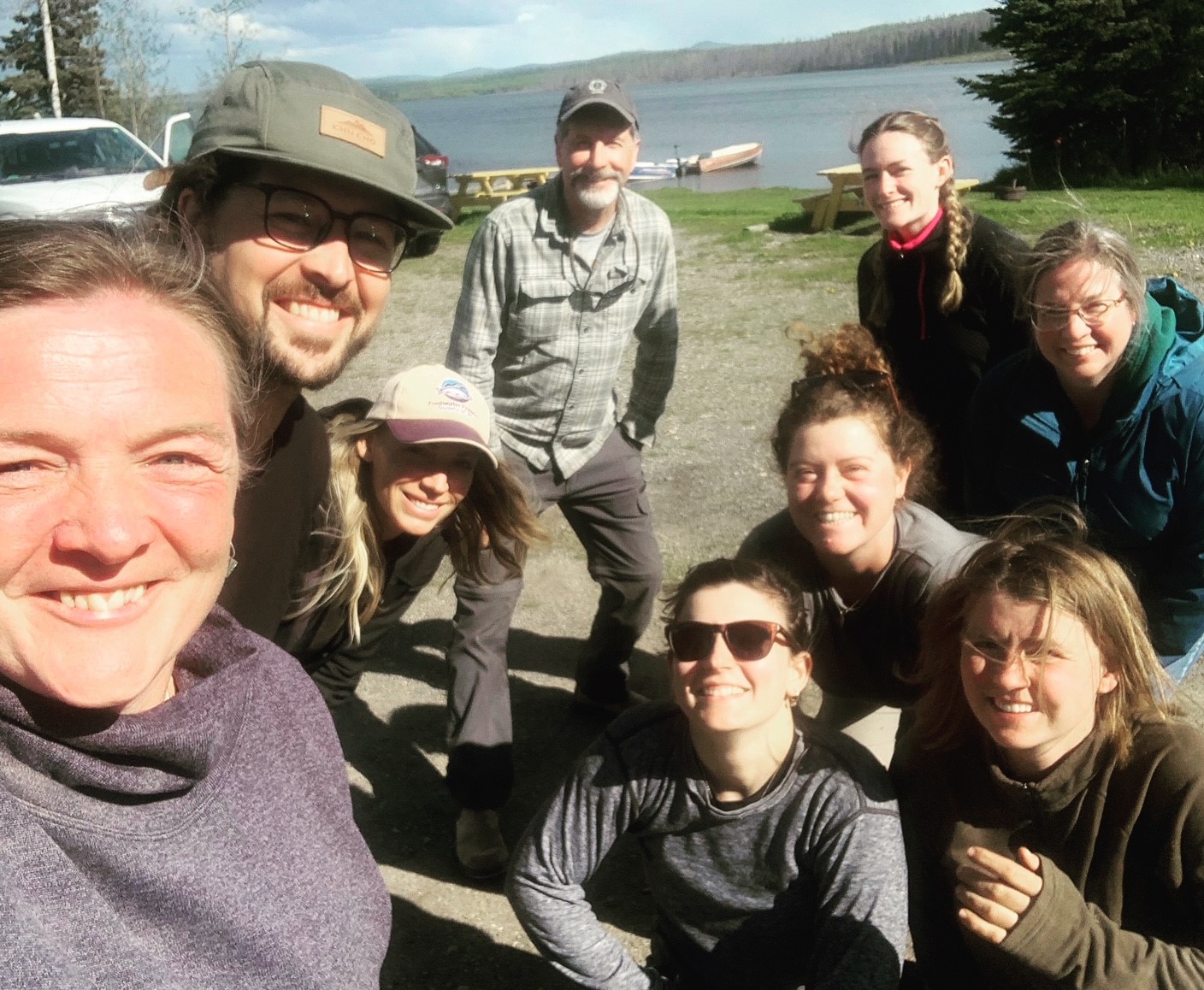In June 2022, HCTF’s Wildlife Program Coordinator Sophia Cuthbert travelled to the habitat of the Tweedsmuir caribou herd ranges in northern BC, approximately 60 km south of Burns Lake, 230 km west of Prince George. The Tweedsmuir caribou herds are within the traditional territory of the Cheslatta Carrier Nation, where their peoples lived for centuries along the shores of Cheslatta and Murray Lakes. Sophia met up with a project team comprised of Cheslatta Carrier Nation members and biologists from the Province of BC to see first-hand the cumulative impacts of logging, disease, and fire on the forest ecosystem, as well as several efforts undertaken to restore some of these areas.

Fire Guard Undergoing Functional Restoration Treatment
Through the Caribou Habitat Restoration Fund (CHRF), HCTF funds the restoration of linear disturbances, such as logging roads, access roads and fire guards, to minimize access routes that can be used by humans, and predators of caribou like wolves, into caribou habitat. This is achieved by functional restoration of the linear corridors; in this case, trees are felled, and coarse woody debris is distributed over the area, and large berms and ditches are constructed to limit vehicle and snowmobile access, as well as limit the line-of-sight for predators. During functional restoration projects, the road surfaces are also ripped, or loosened, and mounding and contouring is done to assist in vegetation reestablishment. Next, the linear disturbances are replanted with local plant species to help initiate natural vegetation growth which will eventually slow predator access and blend the feature into the surrounding landscape.

Example of Berms and Mounding for Functional Restoration of Linear Disturbance
The June site visit follows a 1-day workshop hosted by HCTF for the caribou habitat restoration community supported by the Caribou Habitat Restoration Fund (CHRF), in which restoration biologists and practitioners came together to share learnings and techniques on the relatively new practice of linear disturbance restoration. It became clear from the workshop that strategies that work well for one area of BC may not work in another location. The variation of habitat type presents its own unique challenges, and techniques and best practices are constantly evolving. Speaking on site with project manager and biologist Anne-Marie Roberts, Ministry of Land, Water, and Resource Stewardship, she explained that project managers need to be able to pivot and adapt to a changing landscape. They face challenges accessing certain areas, dealing with the elements, and logistics of site selection and long-term monitoring. Anne-Marie recognized the importance of working alongside Cheslatta Carrier Nation as a pivotal in advancing this work. Working together has also been extremely important for the ongoing success of the project, and for Cheslatta Carrier Nation in managing their lands and improving habitat for the species that live there.
The CHRF program continues to fund caribou habitat restoration projects across the province, with the next intake of proposals opening in September, 2022. The deadline for 2023-24 funding proposals is November 4th, 2022. Please refer to our CHRF webpage for more details.
Funding for this work is made possible by contributions from the Province of BC and Environment and Climate Change Canada.







